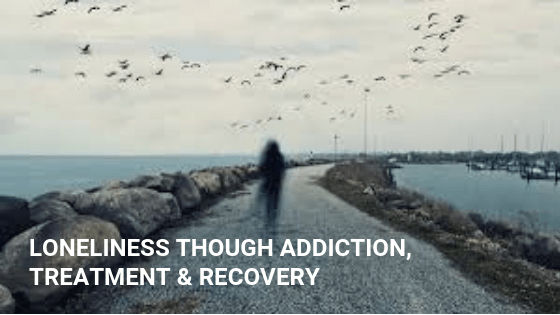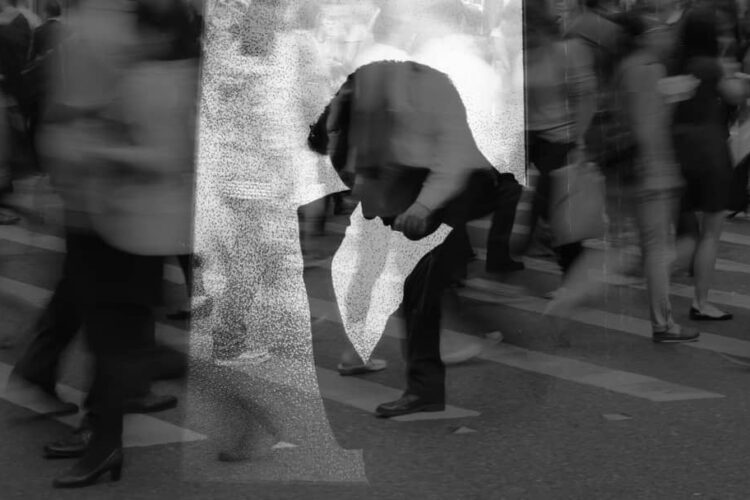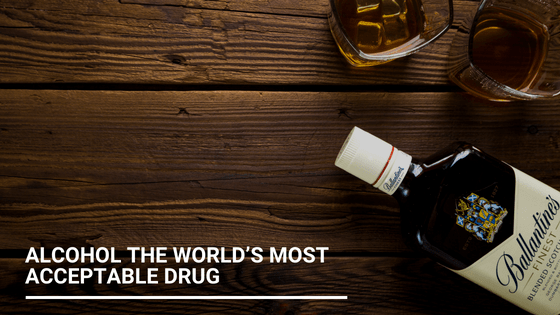
Loneliness though Addiction, Treatment & Recovery
Loneliness a modern definition:
Loneliness is often defined in terms of as the unpleasant experience that occurs when a person’s network of social relations is deficient in some important way. We live in a communication and information age that has us more connected to one another than any other time in history. However, too often these connections and perceived social relationships are actually impersonal, lack the subtly to embrace us in the warmth of self-affirmation, encouragement, and the meaningfulness of belonging. Surveys and statistics gathered by most developed nations suggest loneliness in terms of social isolation is now considered to be a modern day epidemic.
Loneliness can lead to addiction:
The modern definition of loneliness aside, there are many other reasons why people have traditionally come to feel isolated. Many experience loneliness for the first time when they are left alone as infants and the physical absence of meaningful people around a person can later manifest in a lack of friendships through childhood, adolescence and on into adulthood. There are many life events that may exacerbate the condition as well: Moving somewhere unfamiliar, abusive relationships, breakups, divorce, postpartum depression, the loss of a loved one or someone significant to name just a few. Sometimes on the heels of these events we can be surrounded by people yet still harbour feelings of loneliness. At the same time, loneliness may be a symptom of another social or psychological problem, such as chronic depression.
Humans are social animals and we require meaningful social connections and a basic need to belong. It is fundamental to our emotional fulfilment, behavioural adjustment, and cognitive function. When this is lacking we suffer as a result. It may be a source of emotional discomfort, but it has also has a damaging impact on both mental and physical health. Studies have revealed how loneliness is linked to depression, chronic pain, obesity, a shorter life expectancy, and often it can lead to substance abuse.
People sometimes combat loneliness and social isolation by self-medicating with drugs and/or alcohol. If left unresolved it can become debilitating, drowning out a person’s sense of self-preservation and self-care.
Understanding loneliness through treatment:
Treatment can help identify that loneliness may not have just been the cause of substance abuse, but that the primary characteristics of substance abuse are actually circumstances which further foster social isolation and loneliness. One may be cutting themselves off from their loved ones, ignoring their social, work or family responsibilities as they are increasingly preoccupied with seeking and using the drug or because they are sick from its aftereffects. As these dysfunctional behaviours increase in frequency a person may become more isolated and their substance abuse deepens, threatening their physical, mental, and social health. As an individual sinks deeper into loneliness, other negative thoughts and emotions begin to flourish, that hastens the maladaptive behaviours sustaining their addiction. In these cases too often family, friends and others surrounding the addict are adversely affected by the negative behaviour.
Treatment helps a person cultivate self-love, self-confidence, and teaches better methods of self-care through healthy habits and activities. These things help to fight off loneliness and negativity while promoting better mental health. Additionally, family therapy, counselling sessions and support is also offered. Both the individual and their loved ones can begin to understand the root causes of these feelings of loneliness and isolation within the addic, as well as how to avoid negativity and triggers for relapse as they heal and grow together.
Coping with loneliness in recovery:
During the treatment phase of recovery a lot of emphasis is placed on group therapy and other communal activities. This serves the dual purpose of teaching individuals coping and interpersonal skills, as well of combating their feelings of loneliness and isolation. But the adjustment period after successful completion of treatment is a big change and tends to be difficult for those who have suffered with these afflictions. Often fleeting feelings of loneliness can creep back in but one can actively do some things to avoid a relapse associated with them.
Some tips on how to proactively cope with loneliness during recovery:
- Use treatment aftercare programs. They will continue to reach out and connect program graduates to people who can keep them energised and focused on addiction recovery.
- Make it a goal to foster just a few quality relationships with dependable, supportive people and try to avoid aligning with those who can trigger your old patterns of behaviour.
- It is alright to join Facebook groups or online forums if they are positive and supportive. Often you will meet like-minded people that you may have not been exposed to otherwise. If you find they are becoming negative, or not serving a purpose, leaving the groups is as easy as joining.
- Try something new, like joining a club, taking a class or developing a new hobby.
- Try downloading and trying out a few of the fantastic self-help apps on things like mindfulness and meditation that can teach you new skills and methodologies, help organise your day and effectively track your progress.
- Try volunteering. You will be introduced to new people and will gain the satisfaction of helping others.
- If you feel you are ready for some responsibility, get a pet and you will have a loyal companion.
- When you and they are ready, make your apologies to close friends and family. If they are receptive and supportive, spend some quality time them.
- Take time to grieve the departure of the selfish destructive ‘friend’ that was drugs and alcohol. In not using anymore you will realise that to be solitary is not the same as being lonely. It can be healthy and productive.
At Ibiza Calm, we have an expert team of professionals available at all times, so please do not hesitate to call us if you need any help or advice or if you feel a loved one does. Please call us on :
Share this information, choose your platform!
Loneliness – mental health, substance abuse, and addiction …
We are rapidly moving towards the end of the year and the holiday season is almost upon us. Which, for many, is a joyous time – parties and get-togethers with family, friends, colleagues. However, for some, it is not “the …
Alcohol the world’s most acceptable drug
You probably first tried it as a teenager maybe you even had the odd sip as a child. It’s used to celebrate most occasions, its legal and advertised on T.V, you can purchase it from your local shop or supermarket, …
Substance use rises during the pandemic… dangers and signs you may need to look at your use of drugs and alcohol
The United Nations World Drug report published in 2019 estimated that there were 35 million people worldwide with a drug problem. Various studies have shown that there has been a 13%-18% increase in the use of substances during the pandemic. …
We are proud of our team at Ibiza Calm
Meet The Team at Ibiza Calm We would like to introduce our team of experts here at Ibiza Calm, hand picked for their knowledge and expertise. They are all play a vital role in making your stay here at Ibiza …









